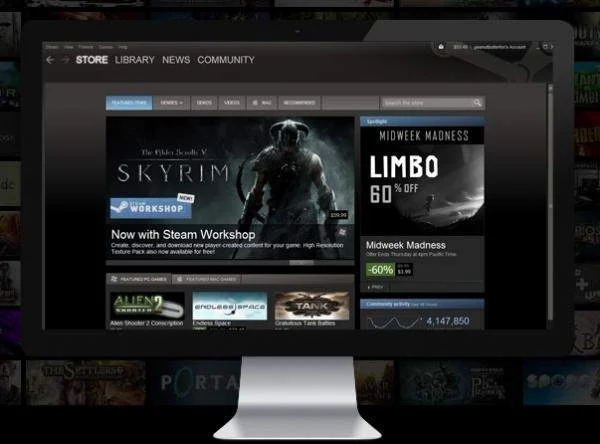Valve is perhaps best known for a number of popular entertainment franchises such as Counter-Strike, Half-Life, Left 4 Dead, Portal, Team Fortress and the popular online gaming platform Steam.
Today, Valve confirmed that Steam would be going mainstream in September with a slew of apps, ranging from creativity to productivity.

“Many of the launch titles will take advantage of popular Steamworks features, such as easy installation, automatic updating, and the ability to save your work to your personal Steam Cloud space so your files may travel with you,” explained Valve rep Mark Richardson.
“More Software titles will be added in an ongoing fashion following the September 5th launch, and developers will be welcome to submit Software titles via Steam Greenlight.”
As 1Up’s Chris Pereira notes, what’s perhaps most intriguing about Valve’s decision to add mainstream software to its already formidable gaming lineup is the potential use of Steam Workshop.
“Steam’s mod distribution arm has already made modding a game like Skyrim a significantly easier proposition. Now imagine it being used for plugins and user-created modifications for software purchased through Steam,” Pereira explained.
“Like game mods, it’s something possible without the use of Steam Workshop, but having an extremely easy-to-use, centralized hub for downloading and installing these things could expand their usage.”
According to Pereira, Steam’s move to the mainstream also gives it a definite edge against competing games distributors.
“If Steam on its own can be used for all your gaming and software needs and lets you reinstall all of that on a new computer, it makes it all the more attractive to those deciding where to buy a game from,” he said.
“For software developers, [yes] you surrender a cut to Valve but maybe you lure in new customers who would have otherwise been averse to purchasing your software through your website.”
Meanwhile, IDG’s Joab Jackson noted that while Steam isn’t often thought of as a cloud service, is has proved successful as an effective digital distribution platform for downloading and installing software on Windows and OS X.
“Thus far, more than 40 million gamers have used the software to download Valve and third-party games. In 2011, Steam was used to download more than 780PB of gaming software, almost double the amount downloaded the year prior. [As such], Steam could provide many additional features for software companies to distribute their wares.
“[For example], the software has DRM (digital rights management) to control copying of software across multiple computers, and a mechanism to push updates to the purchased software – while users can peruse new titles in an online store. The service will also offer a hosted storage service, where users could save their work or configuration settings,” he added.






